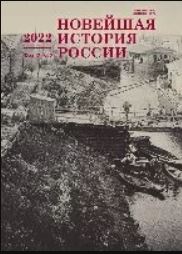Летние лагеря для школьников в системе предупреждения подростковой безнадзорности и преступности в 1960–1970-е гг.
Summer Camps for Schoolchildren in the System for the Prevention of Teenage Neglect and Crime in the 1960s - mid-1970s
Author(s): E. V. KamaevaSubject(s): Labor relations, School education, Criminology, Rural and urban sociology, Post-War period (1950 - 1989)
Published by: Издательство Исторического факультета СПбГУ
Keywords: Komsomol; youth; schoolchildren; criminality; summer; recreation; school; USSR;
Summary/Abstract: In the 1960s and 1970s there was a significant increase in juvenile delinquency in urban and rural areas. The tightening of measures to combat it did not radically change the situation, and the country’s leadership began to pay great attention to educational work, which was mainly entrusted to the Komsomol. One of the priority directions in the work of the Komsomol in this period was the organization of summer vacations for children. There was a search and testing of new forms of work, which was expressed in the creation of new types of summer camps for schoolchildren. On the basis of a wide range of archival materials, primarily reports from the departments of the school Komsomol, the process of creating camps in the city and the countryside is analyzed, and the problems that the Komsomol committees faced in the process of this work are highlighted. First of all, there is a lack of funding. It is shown that the labor and recreation camps for high school students who were striving to exist on the principles of self-sufficiency, created during this period, began to acquire great popularity. At the same time, labor, military, sports, and tourist camps for adolescents registered in the children’s room of the police began to be created. In this regard, there was a problem with training counselors for such camps. The Moscow city committee of the Komsomol was the first to begin training counselors from among student activists. The analysis of archival materials shows that regarding urban schoolchildren during the study period, various types of camps were created for all age groups. The situation was different in rural areas. For the first time, inter-collective farm camps began to appear in the districts, however, they did not become widespread.
Journal: Новейшая история России
- Issue Year: 12/2022
- Issue No: 39
- Page Range: 437-453
- Page Count: 17
- Language: Russian

